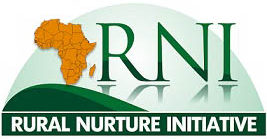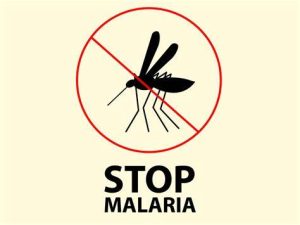Written by: Omowumi Fawole

Photo credit: https://www.panna.org/
Pesticides play a pivotal role in modern agricultural practices by combating pests, increasing crop yields, and ensuring food security. While they have helped farmers increase production and improve food security, their unregulated usage poses significant risks to farmers, consumers, and the environment. The indiscriminate application of these chemical compounds without proper oversight and control has raised concerns about the hidden dangers associated with their usage. Exploring the adverse effects of unregulated pesticide usage on farmers, consumers, and the environment is pertinent to shedding light on the urgent need for comprehensive regulatory measures and sustainable agricultural practices.
According to Food and Agricultural Organization (2018), Nigeria is one of The Africa’s top-pesticide users, with an estimated average annual use of 164,706.52 metric tons of pesticides spread around the country. Farmers in Nigeria continue to demand more pesticides as a result of the development of agricultural activities and the occurrence of insecticide resistance among insect pests. Farmers tend to choose the deadliest chemicals because they are less expensive than newer, more benign pesticides because more benign formulations tend to be more expensive because they are covered by foreign patents and local firms are not allowed to formulate them (Ojo, 2016) . However, the low level of information, knowledge, and awareness among Nigerians on the dangers associated with the use of pesticides is highly prevalent. There is ample proof that widespread pesticide misuse in Nigeria is caused by inadequate pesticide education. The indiscriminate use of pesticides without proper guidance or supervision poses a significant threat to the health of farmers, consumers, and environment at large.
Farmers, as key stakeholders in the agricultural sector, bear the brunt of unregulated pesticide usage. Their occupational exposure to these toxic chemicals poses immediate and long-term risks to their health. Direct contact with pesticides can lead to acute poisoning, resulting in symptoms ranging from nausea and dizziness to more severe neurological and respiratory complications (Rani, et al., 2021). Furthermore, prolonged exposure can cause chronic health effects, including cancer, reproductive disorders, and endocrine disruption. The physical well-being of farmers is not the only concern; the economic burden associated with pesticide-related health issues adds another layer of complexity. Increased healthcare costs, reduced productivity, and potential loss of livelihood further exacerbate the impact on farmers and their communities.
Consumers too, face potential risks from unregulated pesticide usage. Pesticide residues can persist on crops and enter the food chain, reaching consumers through contaminated fruits, vegetables, grains, and other agricultural products. Consumption of such pesticide-laden food has been linked to acute poisoning incidents, particularly among vulnerable populations. Moreover, chronic exposure to low levels of pesticide residues has been associated with various health problems, including developmental disorders, hormonal imbalances, and the development of pesticide resistance in certain pathogens. These risks underscore the importance of safeguarding the food supply chain and protecting consumer health through stringent pesticide regulations and monitoring.
Environmental degradation is another critical aspect intertwined with unregulated pesticide usage. The widespread application of pesticides can result in contamination of soil, water bodies, and air, with far-reaching consequences for ecosystems and biodiversity. Pesticide runoff can infiltrate groundwater, pollute rivers and lakes, and disrupt delicate aquatic ecosystems. The long-term accumulation of pesticides in soil leads to soil degradation, diminishing its fertility and impairing the natural balance of microbial communities. Furthermore, the indiscriminate use of pesticides negatively affects beneficial insects and pollinators, leading to declines in populations critical for ecosystem functioning and agricultural productivity.
In conclusion, the unregulated usage of pesticides poses grave dangers to farmers, consumers, and the environment. Thereby necessitating the urgent need for comprehensive regulatory measures to control pesticide usage through effective pesticide management strategies encompassing farmer education, training on proper handling and application techniques, monitoring systems, enforcement mechanisms and Implementing integrated pest management (IPM) approaches, such as crop rotation, biological control, and cultural practices to reduce pesticide reliance and promote sustainable agriculture. Only through collective efforts can we safeguard the health and well-being of all stakeholders and ensure a sustainable future for agriculture.
Sources:
[1] Food and Agricultural Organization of the United Nations (FAO) (2018). Statistics division. http://www.fao.org/faostat.
[2] Ojo, J., (2016). Pesticides use and health in Nigeria. Ife Journal of Science, 18(4), 981-991.
[3] https://ipen.org/sites/default/files/documents/sedi_nigeria_hhps_report_2021.pdf
[4] Rani, L., Thapa, K., Kanojia, N., Sharma, N., Singh, S., Grewal, A. S., & Kaushal, J. (2021). An extensive review on the consequences of chemical pesticides on human health and environment. Journal of Cleaner Production, 283, 124657.
[5] Pérez-Lucas, G., Vela, N., El Aatik, A., & Navarro, S. (2019). Environmental risk of groundwater pollution by pesticide leaching through the soil profile. Pesticides-use and misuse and their impact in the environment, 1-28.



